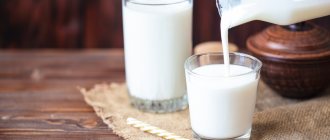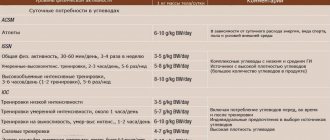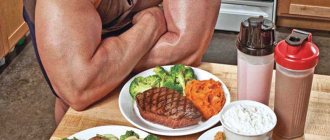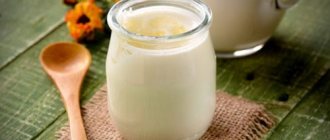The struggle for a beautiful, slender and toned body is a complex process that requires not only regular exercise in the gym, but also a properly organized diet. Many beginners, and even experienced athletes, are interested in the question: what can you eat (drink) before and after physical activity, so as not to reduce all the efforts made to “no”?
What to drink after training. Pre-workout nutrition
So, in your pre-workout diet you need to:
Turn on:
- proteins; - carbohydrates.
Exclude:
- fats (or no more than 3 g).
Carbohydrates in your pre-workout diet are essential to provide energy to your muscles and brain. During exercise, the 'fuel' is burned very quickly, and it is necessary that it be glycogen, since the body cannot supply the required amounts of energy from fat (due to lack of oxygen). Proteins in the pre-workout diet will not be a source of energy; they are a source of amino acids for working muscles. As a result, immediately after training, muscle protein synthesis increases sharply. There should be no fat in your pre-workout diet because it slows down your stomach and the speed of digestion. Fatty foods stay in the stomach longer and can cause colic, nausea, and belching during exercise. The best pre-workout meals: - poultry (turkey, chicken breasts) with coarse bread or rice; - lean steak with potatoes; - an omelette made from egg whites with oatmeal. The caloric content of food before training should be normal, as at other times. It is better to eat bulk food (a large portion of salad or a bowl of soup) an hour or two before training, so that it has time to be digested and the stomach is empty. More dense food (half a plate of porridge or cottage cheese) can be eaten 30 minutes to an hour before the start of the workout. If you are training to build muscle, then 30 minutes before training, eat one large fruit with a low glycemic index (apple, pear, strawberry or any other berries) and wash it down with a protein drink (preferably whey protein). The protein calculation for this shake is as follows: 0.22 g of whey protein per kilogram of weight. For example, if you weigh 68 kg, then the cocktail (mixed with water) should contain 15 g of protein. Also, 30 minutes before training, drink a glass of strong black coffee (with sweetener, but not cream) or very strong green tea. This will help the secretion of epinephrine and norepinephrine, which mobilize fat from fat cells so that the body can use it as fuel. This way, you will burn more fat and less glucose, glycogen and amino acids during your workout. Fatigue during the training process will come much later. Your head will be clearer and you will be able to train more intensely. The effects of pre-workout coffee last approximately 2 hours. It is better not to eat anything immediately before training, since physical activity distracts from the process of digestion (rhythmic contractions of the stomach to digest food). As a last resort, if you are very hungry, you can drink a glass of protein shake or milk.
Coffee
Most athletes prefer to drink coffee in the morning before starting a workout because of its caffeine content. In addition to the fact that a cup of brewed coffee perfectly awakens the body, it also improves endurance due to the fact that it reduces the severity of the brain’s perception of physical activity.
Matt Fitzgerald, in his book Diet of Champions, cites a 2014 study that found that 73% of 23,000 urine samples taken from Olympic athletes over 5 years had traces of caffeine. Its highest level is in tests of triathletes, rowers and cyclists.
Since the amount of caffeine in coffee varies, many athletes prefer to use caffeine tablets, chewing gum, and energy drinks. The unique combination of this substance with antioxidants makes this drink a good stimulator of sports performance. Scientific research shows that it is completely safe to drink up to four cups of coffee a day.
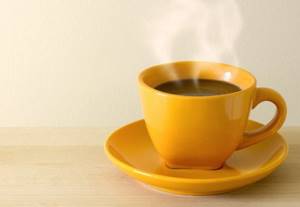
Post-workout menu. Post-workout nutrition to burn fat
If you want to lose weight quickly and for a long time, then it is important to know how to eat before, after and during training. After classes, there is a so-called protein-carbohydrate window, energy continues to be consumed.
The post-workout diet involves abstaining from food for 1.5-2 hours so that the breakdown of adipose tissue is more effective. Those who cannot stand the feeling of hunger are allowed to eat one green apple to curb their appetite, but nothing more. The preferred food 2 hours after training is lean meat, omelettes, fish, low-fat cottage cheese. Vegetable salads seasoned with unrefined vegetable oil will be useful as a side dish.
Since carbohydrates are processed first during sports, they should be eliminated after an active workout for weight loss so that the living molecules that were released during strength training do not stop breaking down and return back. If you are training for weight loss late in the evening, then it is better to stick to a light diet in the form of cottage cheese and tea, and if early in the morning (at 5 am), then eat a few fruits and drink coffee half an hour before training.
Sample menu for the week
Creating a menu for weight loss that is the same for everyone is not an easy task, because you should take into account gender, age, weight, daily calorie consumption, and the number of workouts per week individually. It is also advisable to keep in mind food preferences so that nutrition is balanced and brings pleasure to the person. Not everyone eats the hated oatmeal before training in the morning, so the weight loss process will quickly be interrupted. We offer an approximate weekly diet menu for proper weight loss when losing weight:
Monday .
- Breakfast - buckwheat porridge, green tea.
- Lunch - apple, glass of kefir.
- Lunch - stewed vegetables, steamed chicken fillet, dried fruit compote.
- Dinner - fish soup, bran bread, herbal tea.
Tuesday .
- Breakfast - muesli with yogurt, natural coffee.
- Lunch - cottage cheese with sour cream (low fat), berry broth.
- Lunch - vegetable soup, classic vinaigrette, juice.
- Dinner - grilled fish, vegetable salad, tea with honey.
Wednesday
- Breakfast - baked apple, oatmeal, natural coffee.
- Lunch: homemade yogurt with nuts.
- Lunch - borscht, fish cutlet, mashed potatoes, freshly squeezed juice.
- Dinner - vegetable stew, steak, tea with a spoon of honey.
Thursday .
- Breakfast - cottage cheese casserole, natural coffee.
- Lunch - a protein shake with a raw egg.
- Lunch - chicken cutlet, buckwheat porridge, compote.
- Dinner - Chicken fillet, vinaigrette, tea.
Friday .
- Breakfast - rice porridge with honey and milk, natural coffee.
- Lunch - banana, glass of kefir.
- Lunch - vegetable soup, goulash, pea puree, freshly squeezed juice.
- Dinner - raw vegetable salad, boiled chicken, tea with honey.
Saturday .
- Breakfast - omelet with cheese, toast, cocoa.
- Lunch - yogurt, marmalade.
- Lunch - chicken broth with eggs, vinaigrette, compote.
- Dinner - boiled chicken breast, mashed potatoes, tea.
Sunday .
- Breakfast - oatmeal, natural coffee.
- Lunch - a glass of fresh kefir, biscuits.
- Lunch - Buckwheat soup, meat baked in the oven with vegetables, juice.
- Dinner - rice, boiled fish, vegetable salad, tea with honey.
Grape juice
Grapes are a real carbohydrate bomb, consisting of 86% fructose and glucose. Therefore, it is obvious that its fruits supply the body not only with useful substances, but also with energy.
Brazilian scientists announced the benefits of grape juice in 2015. They published a study that found the drink had the same ergogenic (performance-enhancing) properties as sports supplements. The experiment involved 28 runners - men and women, who were divided into groups. Members of the first group drank an average of 700 ml of juice daily for 28 days, while participants in the other groups drank isotonic drinks of similar calorie content. They all trained at normal intensity, running 7 km a day. The results showed that drinking grape juice increases endurance and reduces inflammation in the body.
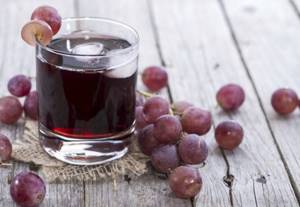
Kefir before training. Is it possible to drink kefir after training?
The struggle for a toned, slim and at the same time strong body is a process that requires the investment of a huge amount of effort. Training alone is not enough; it is very important to correctly organize your diet depending on whether you want to lose excess fat or gain weight. Consequently, many athletes are faced with an urgent question: is it possible to drink kefir after training, what are its benefits and harms, and whether it will reduce all the energy spent to zero. Let's consider all these questions.

Kefir: a healthy product
Almost all experts say that you can and should drink this fermented milk drink after training, since it simultaneously copes with several tasks at once:
- During active sports, our body loses a lot of energy, and kefir allows us to fill the calorie deficit, therefore, it returns this energy.
- Thanks to kefir, you can close the protein window if you want to lose weight.
- This drink contains calcium - an essential trace element that is involved in the fat burning process and also strengthens bones - this is very important for athletes.
In addition, kefir has an excellent effect on digestion processes.
Despite all the usefulness of this product, it contains few calories - only 34 calories per 100 grams of drink. This is a natural antioxidant that allows the body to recover faster and not age. Scientists have also found that thanks to the daily use of this product, it is possible to improve metabolism and restore metabolism - as a rule, this is the first goal for the fair sex.
Important: 2 glasses of kefir contain approximately 15 grams of protein, and most of it is casein, which is slowly absorbed, due to which you can forget about the feeling of hunger for several hours without harm to the body.
What beneficial elements does kefir contain?
So, as we have already managed to find out, kefir is an excellent fermented milk product for athletes, regardless of the goal they are pursuing. Let's take a closer look at what beneficial elements are present in the drink:
- Antioxidants. Drinking a glass of this delicious, refreshing drink after training will neutralize the effects of free radicals - they are formed directly in the muscles and tend to destroy their fibers.
- Calcium. Probably not many people know, but calcium has the ability to stabilize hormonal levels. Calcium is also vital for both adults and children - it strengthens bones, makes nails, teeth, and hair beautiful.
- Phosphorus. It supplies the body with energy and helps muscles recover more actively. Thanks to phosphorus, it will be much easier to relieve fatigue after training.
Many people believe that they should only drink low-fat products. In fact, this is not entirely true: fats are required for the full absorption of calcium. Therefore, if you are not faced with the acute issue of losing weight, it is best to choose kefir with 2.5 fat content.
Is it possible to drink kefir after training if the goal is weight loss?
Many experts recommend drinking this product also because it helps replenish fluid deficiency after intense physical activity. Kefir improves the functioning of the digestive system, and this aspect is also important to consider if you intend not only to tone your body, but also to lose weight.
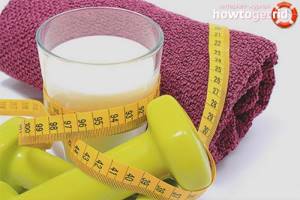
Calcium promotes the burning of fat deposits - by the way, scientists discovered this fact quite recently. Therefore, if you intend to achieve results as quickly as possible, you should pay attention to a fermented milk product.
You can drink low-fat kefir: in principle, it contains a sufficient amount of useful substances. For reference, a standard liter of kefir contains about 400 kcal per liter, but low-fat kefir contains 270. Why consume extra calories if you really want to lose weight?
It is noteworthy that nutritionists have even created a special kefir diet for those who want to lose weight. During the day you can eat rice, lean meat, eggs, cottage cheese, and definitely kefir. And the latter should be at least two liters per day. Many people who have already tried this diet claim that it is really effective. So, kefir can be drunk not only to restore strength after training, but also as a product that will help you lose weight.
When should you not drink kefir?
Despite all the benefits of this product, there are still situations when you have to refuse the drink:
- You have a weak intestine - kefir can cause stool upset.
- If you have lactose intolerance, allergic reactions may occur.
- If you suffer from gastritis with high acidity, kefir helps to increase it.
Otherwise, this drink will only benefit you.
Composition and beneficial properties of the product
Drinking kefir is recommended for absolutely everyone, regardless of whether you engage in sports and strength training or not. This drink performs several important tasks at once:
- gives the body a large amount of proteins;
- replenishes calorie deficit;
- has a positive effect on the functioning of the digestive system;
- saturates cells with calcium;
- starts metabolism;
- removes toxins;
- improves hormonal balance.
It is often used for weight loss. Kefir can be full-fat (2.5-3%) or low-fat (0.5-1%). It is better to drink it at night or in the evening. It contains a minimum amount of calories and fat. Per 100 grams of product 30 kcal.
The protein contained in fermented milk drink has one feature. It is slowly absorbed, gives energy and strength, and gives a feeling of fullness for a long time.
This protein is essential for muscle growth. The drink contains phosphorus, which improves the absorption of calcium, and also gives a feeling of vigor and relieves fatigue, which is so important for training.
Mineral water
It is beneficial for the body if it is natural water from a deep well, the number of which is indicated on the bottle.
Mineral water perfectly quenches thirst and helps restore the body after a hard aerobic workout in the heat. Evidence for this claim was provided by a group of Lithuanian scientists in a 2014 report.
Nine healthy women were asked to drink mineral water obtained from a depth of 689 m or purified tap water after exercise. Each participant did a long aerobic run every day at a temperature of 30°C for seven days. The scientists then switched participants and continued the week-long session again.
As a result, body weight decreased by almost 3% after the dehydration workout. At the same time, the level of VO2 max after 4 hours of recovery was 9% higher in those who took mineral water, and their muscle strength in the legs was restored faster after the race.
Read more: How much water should runners drink? How to choose a bottle or flask for running
